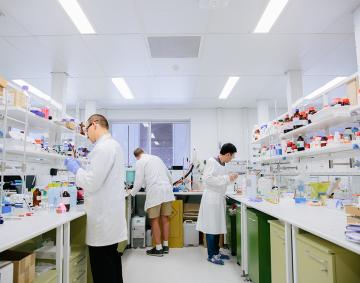
There are several PhD scholarships on offer with the Centre for Innovation in Biomedical Imaging Technology. Students will undertake industry-driven research to overcome bottlenecks in the development and application of novel diagnostics, therapeutics and theranostics and to inform changes in regulatory policy that support industry growth. Scholarships will include an industry placement for one year.
Projects are available in CIBIT’s research themes:
Theme 1: ‘Smart’ Probes: Diagnostics, therapeutics and theranostics for Precision Medicine in cancer.
Theme 2: ‘Smart’ Scanning: Harnessing the digital revolution to improve diagnostic imaging cost-effectively.
Applications are invited from outstanding and enthusiastic graduates with relevant backgrounds. Students may be domestic or international of high scholarly calibre and will have a First Class Honours degree, Masters degree or equivalent. Applicants must meet the requirements for admission into the UQ Graduate School PhD program (https://graduate-school.uq.edu.au/uq-research-degrees) and should also be eligible for a UQ Graduate School Scholarship (UQGSS) (https://graduate-school.uq.edu.au/scholarships).
Current Opportunities
Novel antibody therapeutics and diagnostics for oncology
Nanomedicine is a major driver of the biotechnology sector and contributes significantly to innovation in Australia. Of particular importance, is the role that novel antibody therapies contribute to clinical regulation of many diseases. We are seeking high achieving graduate students to undertake postgraduate research into next generation nanomedicines that utilise antibody-targeting strategies to deliver radio- or chemotherapeutics. These projects will have a strong industry focus, with dedicated input and training from commercial partners in the biotechnology sector. Applicants should have experience in chemistry and biology, and can expect high-level training in state-of-the-art imaging facilities for in vivo validation of new technologies. The unique collaborative environment presented within this program will offer the candidate opportunities to expand their career into areas spanning academia and industry. In particular, the candidate will be involved in developing new biomedical imaging guided therapies (theranostics), diagnostic radiopharmaceuticals, antibody-drug conjugates for cancers including prostate and ovarian cancer, glioma, melanoma and osteosarcoma.
Applications close: 27 May 2018 (11:55 PM) E. Australia Standard Time.
See UQ Jobs for more information.
